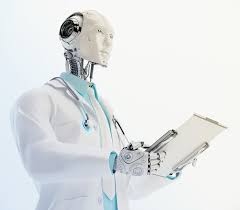Source: qz.com
In the early 1980s, presentations about Infosys began with the founders’ pointing out India and Bengaluru on a world map. Today, globally listed companies such as Dr Reddy’s, Tata Motors, and Reliance Industries have made that redundant.
The country is also the third-largest startup nation. A number of its business-to-consumer (B2C) ventures, from e-commerce major Flipkart to ride-sharing platform Ola, are known across the world.
Now, a new wave of business-to-business (B2B) startups in niche segments is silently creating a significant impact globally. Rising from the streets of nondescript suburbs, they are breaking the glass ceiling, global oil & gas majors and large manufacturers being their customers. These firms are solely responsible for India’s breakthrough in the industrial artificial intelligence (AI) space.
A simple case: A large oil & gas conglomerate looking to predict the safety of its drilling machines spread over an area of thousands of kilometres can hire an Indian AI startup for the task.
There are many such collaborations sprouting.
That leads us to a question: Is there a playbook emerging for Indian startups to go global? Let us find out.
Indian success ingredient
Like those in Stuttgart, Germany, industrial clusters in several Indian cities like Bengaluru, Chennai, Pune, and Coimbatore have, over the years, spawned many micro industries. This is one of the reasons startups have ventured into industrial AI in India.
“The kind of innovation India’s industrial AI startups have is unparalleled across the globe. Surprisingly, such innovation is not stemming out of the Bay area,” said Derick Jose, co-founder of Flutura, a global leader in applying industrial AI for energy and engineering applications. “Our strength is the cluster-oriented talent we have been able to hone. For example, Bengaluru has defence as a vertical, Pune has auto and manufacturing, and Chennai has auto and original equipment manufacturers (OEMs). They are also thriving ecosystems where engineering prowess and industry intersect.”
Bengaluru, even before the advent of IT, was a defence and aeronautics cluster. There was a very strong engineering base in the southern Indian city. Then slowly, we saw the evolution of an intersection of analytics and engineering. A great example of this is Sunlux Technologies, which manufactures sensors for the Indian Navy.
“In every hi-tech hub of developed innovation economies, the rise of the modern-day tech entrepreneurship ecosystem (startups and venture capital) happened under the larger canopy of an advanced industrial innovation ecosystem,” said Vishwanathan Sahasranamam, co-founder and CEO of Forge Accelerator. “This ecosystem powered and pioneered the development and commercialisation of advanced technologies in creating globally competitive solutions for the most challenging industrial sectors. The greatest contribution of this being the creation of highly competent technologists, who, with the vision to exploit the power of these technologies and the entrepreneurial ambitions, created the next generation of multibillion-dollar ventures.”
Additionally, Indian startups have low operating expenses and capital expenditure, and the solution is generally affordably priced, which is also a major advantage.
Breaking through the global opportunity
A 2016 report by McKinsey states that, while “feeling” prepared, only 30% of the technology suppliers and 16% of the manufacturers have an overall strategy for Industry 4.0 (the trend towards automation and data exchange in manufacturing technologies) in place, and only 24% have assigned clear responsibilities for that.
Large global companies invest several millions of dollars on R&D and many prefer hiring internal teams to work on sensitive challenges. “If someone in your family is ill, will you buy a heart valve from a startup or a big company? That got us thinking. They are not buying AI, they are buying peace of mind,” said Derick Jose of Flutura. “We are touching some of their core processes, as a lot of sensitive data is concerned. Therefore, they are hesitant to move us to the core. Our strategy was to go to customers who have experienced internal failure.”
Global companies, especially those operating within specific industries, are tightly knit communities. One way to win their trust is to begin speaking their language and winning smaller projects. Once you have their trust, they refer you to several others in their circles.
“India is known for its software prowess and we have the talent and capabilities in machine learning, computer vision, and deep learning,” said Tarun Mishra, co-founder of DeTech Technologies. “The next level is building the AI layer on top and India is front-ending this revolution. In many ways, we are the OEMs of this data and it is only organic for us to expand to the field of industrial AI.” DeTech Technologies is a Chennai-based startup incubated at the Indian Institute of Technology Madras in 2016. It works with leading global oil and gas companies.
The playbook for early sales
Technology and innovation have been and will remain central to how production evolves. Despite the recent slowdown in global economic growth, production continues to be a critical driver of the economy in the developed and developing countries, according to a World Economic Forum whitepaper.
What would help Indian startups in this space is larger government grants, akin to what the US, China, and Israel provide. Indian talent is also slowly warming up to this space, thus, engineering colleges must modify their curriculum to keep pace.
At a micro level, according to some of the founders of these startups, what has worked for them is:
- Aniruddha Bannerjee, founder, SwitchOn: “…show tangible return on investment. From day one, we work with customers who’re looking at numbers. Working with a demanding customer makes it easier to work with others.” SwitchOn builds AI solutions for auto and FMCG firms.
- Saad Nasser, founder of Ati Motors: “Automation is all about increasing efficiency and productivity; and will change the way we work. With automation you get reconfigurability and we see an openness towards that. Hence, Sherpa, our industrial electric vehicle, is seeing more acceptance.” Bengaluru-based Ati Motors makes an all-electric autonomous cargo vehicle, Sherpa.
- Harsimrat Bhasin, co-founder of Neewee AI: “Bodhee’s value proposition of delivering analytics outcomes on the shop-floor and its holistic approach of integrating silos in the manufacturing value chain has helped us gain faster traction.” Bodhee is the company’s industrial analytics product with an AI solution that predicts industrial outcomes.
These ventures are not only working on cutting edge technologies that will be crucial for several industries in future, they’re also doing a lot for India. “The startup story of India has largely been domestic till now. Thanks to the kind of global companies being built, industrial AI is emerging as a space where India can establish a leadership position in the global AI ecosystem,” said Ganapathy Venugopal, co-founder and CEO of Axilor Ventures, an early-stage seed fund and startup accelerator.


